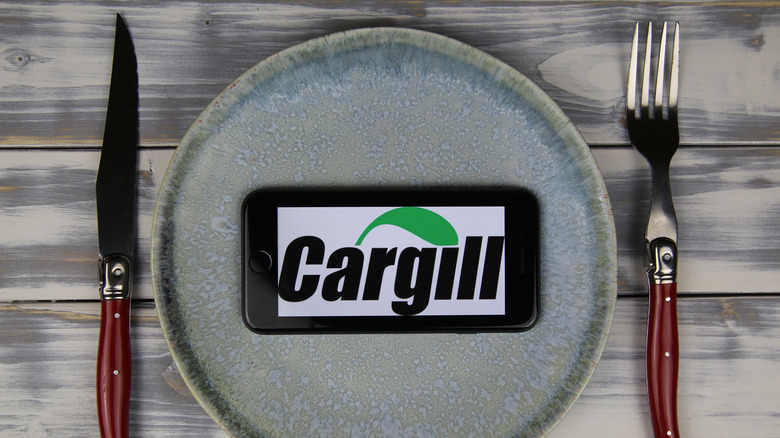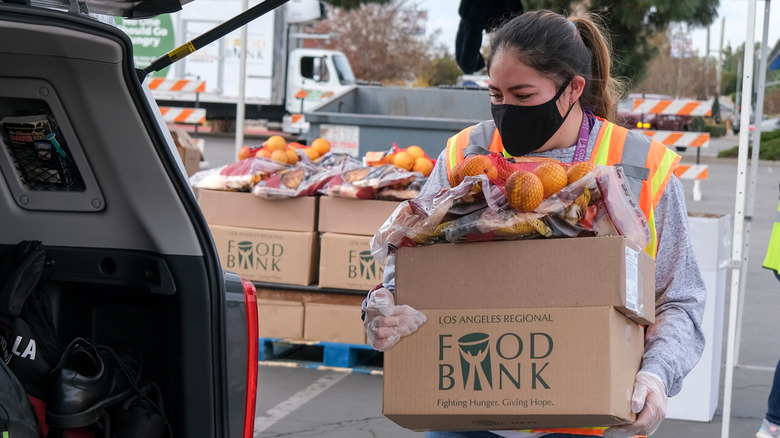How Cargill Is Helping To Restock American Food Pantries
During an a time of record high inflation rates (via Forbes), investing in supplying food banks across the country with more food and better storage facilities is crucial. According to a report by Feeding America from last month, food banks nationwide have seen a 30% increase in traffic compared to pre-pandemic times. Per the USDA, 35.3% of households below the poverty line experienced food insecurity in 2020, and many local food banks are suffering.
Now, Cargill, an international provider of food and food-related aid (including agricultural and industrial resources), is looking to help keep the efforts going in a big way. The company works alongside businesses at the operational level to combat global food insecurity. For example, Cargill supplies feed and agricultural insights to farmers, purchases livestock from them, then turns the raw materials into usable products and distributes them to customers. This week, however, the company chose another strategy for fighting food insecurity, announcing a $4.9 million donation to Feeding America, via an official press release. Included in Cargill's donation is a $1.9 million initiative to increase food banks' supply of chicken, beef, pork, and plant-based protein alternatives. According to the company's press release, protein sources are in low supply at many local food pantries.
Food banks need protein sources and ways to store them
A chief reason for this shortage, Cargill explains, is that many food banks lack the refrigeration abilities or capacity to keep protein donations chilled to food-safe temperatures. As such, as part of the donation, the company announced plans to construct refrigerated protein-pack rooms for storing bulk proteins, which would be capable of preparing and distributing 300,000 pounds of protein donations per year, via the press release. The remaining $3.1 million of Cargill's donation is reportedly going toward grants for local-scale food banks, with a particular focus on rural and low-income areas suffering from food insecurity. National organizations are looking to help the cause, as well. Federal spending in support of the USDA's food programs increased by 49% from 2020 to 2021 ($122.8 billion to $182.5 billion).
According to the CDC, when healthy, nutritious food options are not available, peoples' diets suffer – particularly folks in lower-income areas and socioeconomic demographics often have difficulty accessing these nutrient-dense options, it says. Meat Institute president and CEO Julie Anna Potts says Cargill's donation is coming at a crucial time for U.S. food banks. "Filling the 'protein gap' and ensuring families in need have access to enough nutrient-dense meat is essential to ending hunger in the United States," Potts explains in the press release. "Food security is key to NAMI's Protein PACT vision for 2030, and Cargill's contribution demonstrates the considerable achievements underway."

